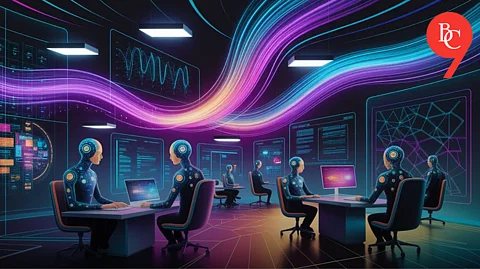

The content creation industry is undergoing its most profound transformation in history, driven by the relentless rise of artificial intelligence (AI). In 2025, AI is not just a tool for creators—it is a game-changer, fundamentally altering how content is conceived, produced, distributed, and consumed. From writers and marketers to designers and media companies, everyone is feeling the seismic impact of this technological revolution.
AI-powered tools have become ubiquitous in content creation. Platforms like ChatGPT, Jasper, and Google Gemini now generate articles, scripts, social media posts, and even poetry with human-like fluency. Video and image generators such as Midjourney, DALL-E, and RunwayML are producing stunning visuals and animations in minutes—tasks that once took days or weeks.
According to recent industry reports, over 70% of digital content published in 2025 involves some form of AI assistance, whether for ideation, drafting, editing, or optimization. This surge is fueled by AI’s ability to:
Accelerate workflows: AI can generate drafts, headlines, and outlines in seconds, freeing creators to focus on strategy and creativity.
Enhance personalization: Algorithms analyze user data to tailor content for specific audiences, boosting engagement and conversion rates.
Scale production: Brands and agencies can produce vast amounts of high-quality content across multiple platforms, languages, and formats.
While some feared AI would replace human creativity, the reality is more nuanced. AI is empowering creators to do more, not less. Writers use AI to overcome writer’s block, marketers leverage AI for data-driven campaigns, and designers collaborate with AI to visualize ideas faster.
However, the AI-driven content boom is not without its challenges. As automation increases, so do concerns about originality, authenticity, and misinformation.AI-generated content can inadvertently mimic existing works, raising legal and ethical questions.
Routine writing and editing roles are evolving, requiring professionals to upskill and adapt to new technologies. Audiences are demanding clear disclosure when content is AI-generated, pushing platforms to develop new standards and guidelines.
Looking ahead, the most successful content creators will be those who embrace AI as a creative partner, not a competitor. The industry is witnessing the rise of “AI-literate” professionals—individuals who blend human insight with machine intelligence to craft compelling, original, and impactful content.
